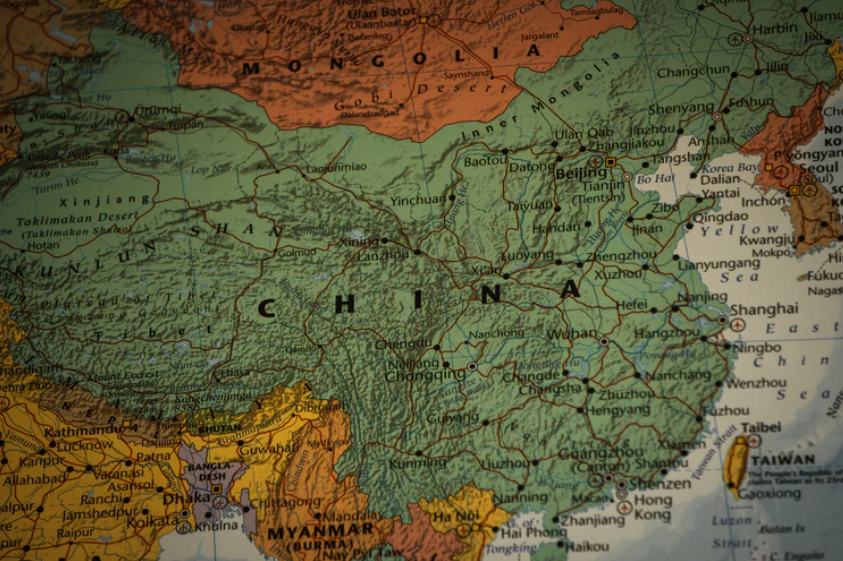Former Prime Minister of India, Dr Manmohan Singh once said, “I wish we could choose our neighbors.” In 2020, in some cases it still stands true for India; but what about nations like China, who have border disputes with almost all its neighbors?
China is known to have territorial disputes with various countries like India, Nepal, Vietnam, Russia, China claims that it has been a negotiator but history is witness to its numerous unsettled border disputes. It is known to be an expansionist power, as not only land, China has its webs deep under the ocean too. There are regular reports of Chinese intrusion of the Indian Ocean Region (IOR); as Chinese trawlers have illegally robbed Indian fisherfolk of piscine resources. Other crucial developments of a fleet of 12 Chinese Underwater Unmanned Vessels (UUVs) recovered by Indian authorities. China has flouted intrusion allegations by saying that it sends vessels for oceanographic and hydrographic findings and no strategic intention.
Even at the Eastern China Sea, China has Exclusive Economic Zone (EEZ) disputes with North Korea, South Korea and Japan in the Yellow Sea (North Koren/South Korea) and East China Sea (South Korea/Japan). China also claims Japan’s Senkaku/Diaoyu Islands.
Days after the Sino-Indian Galwan clash, A Nepal government report accessed by ANI said that China is using increased road construction in Tibet to encroach on Nepali land and may set up border outposts in these areas in the future.The report, prepared by Survey Department of Agriculture Ministry, shows a list of 11 places, of which China has encroached on 10 places comprising about 33 hectares of Nepali land, by diverting the flow of rivers which act as a natural boundary.
China on Saturday stated that it has border disputes with Bhutan as well. The Chinese foreign ministry’s statement said: “The boundary between China and Bhutan has never been delimited. There have been disputes over the eastern, central and western sectors for a long time, and there are no new disputed areas.
According to a report by Hindustan Times, “China always stands for a negotiated package solution to the China-Bhutan boundary issue,” added the statement, provided by the foreign ministry after HT reached out for a response to reports about China objecting to a grant request for Sakteng wildlife sanctuary in eastern Bhutan’s Thrashing district at a virtual meeting of the Washington-based Global Environment Facility (GEF) in June. The sanctuary, located in the easternmost part of Bhutan, covers 650 sq km.
The editor of a Bhutanese newspaper, Tenzing Lamsang released a series of tweets on the ongoing scuffle and the recent demarche issued to China.
“Bhutan totally rejects the claim made by the Council Member of China. Sakteng Wildlife Sanctuary is an integral and sovereign territory of Bhutan and at no point during the boundary discussions between Bhutan and China has it featured as a disputed area.”
In addition to registering its position at GEF, Bhutan’s foreign ministry issued a demarche or formal diplomatic representation to the Chinese embassy in New Delhi on the matter, people familiar with developments said.
In a press statement, China has indicated that it wants no third party interference regarding the Bhutan border dispute. Even though China and Bhutan have sailed through 24 border negotiation sessions, what is astonishing is that the two neighbours still don’t have formal diplomatic ties. China and Bhutan usually communicate diplomatically through their envoys to India.
India and Bhutan have shared cordial ties. Last month, a blocked irrigation channel between India and Bhutan in Assam gave rise to fake news about Bhutan turning cold towards India; the clarifications from Bhutanese officials and media came immediately. Chief secretary of Assam, Kumar Sanjay Krishna said the water blockage incident “has been incorrectly reported”. The real cause, he said, is “the natural blockage of informal irrigation channels into Indian fields”.
China is seen as a global menace due to its infamous expansionist agenda, therefore it should rethink its policies and intentions. It is already the most populated country in the world with a population of more than 1.4 billion. China should be in content with all the resources and assets it already possesses and not aim at insatiable and illegal trespassing of foreign territory, in order to avoid isolation.

